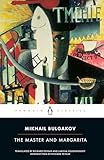It’s safe to say that Tumblr saved my reading life. By the time I began using police composite sketch software to create images of literary characters suggested by Tumblr users I had really stopped reading fiction. Between sorting short stories every month at Joyland and switching from writing unsold novels to working on film and television scripts, my relationship to fiction had trailed off to a sluggish pulse. When The Composites took off, I started reading what thousands of complete strangers told me to read and, in the process, I rid myself of a lifetime of habits, biases, and poorly formed opinions on what literature should be. I killed my inner pundit.
 Answering the hive mind of Tumblr, I was sent rummaging through my books in storage. I searched Project Gutenberg. I skulked the aisles of The Strand bookstore with pen and notebook, hoping to not get caught. While I thought I probably looked thoroughly insane, I’m confident the staff had seen worse. Hell, I even bought a few books.
Answering the hive mind of Tumblr, I was sent rummaging through my books in storage. I searched Project Gutenberg. I skulked the aisles of The Strand bookstore with pen and notebook, hoping to not get caught. While I thought I probably looked thoroughly insane, I’m confident the staff had seen worse. Hell, I even bought a few books.
This accelerated thesis-style surveying of 400 random novels over eight months allowed me to revisit books from my past and to see their forgotten influence on me now. Stephen King may have unknowingly swiped the title Joyland, but I still think Misery is a bitter, hilarious, and brilliant novel. Not before or since has such a popular author figuratively punished his fans with effortless postmodernism — a nuance I may have missed when I first read it at age 13.


 I re-read The Recognitions, William Gaddis’s messy, vital book about the impossibility of living authentically. His consciousness-altering writing merged with The Composites, from the definite article title to the heady brew of ideas about representation and originality. Even the resulting composite image of the protagonist, Wyatt Gwyon, felt like a mystery solved. Gaddis had described a face much like his own.
I re-read The Recognitions, William Gaddis’s messy, vital book about the impossibility of living authentically. His consciousness-altering writing merged with The Composites, from the definite article title to the heady brew of ideas about representation and originality. Even the resulting composite image of the protagonist, Wyatt Gwyon, felt like a mystery solved. Gaddis had described a face much like his own.
Mikhail Bulgakov’s perfect novel The Master and Margarita was something I boldly lied about having read before and once you lie about having read a book it’s very difficult to undo deceptions you’ve built your life on. Jonathan Lethem’s funny and affecting The Fortress of Solitude was a novel that sat on our shelf for years (it’s one of my wife’s favorite books). Neil Gaiman’s American Gods is the story I now most want to see as a TV show adaptation.
The default of the hive mind is to reiterate the popular. A composite drawn from Gaiman’s novel created waves of nerdgasms throughout Tumblr while something like the composite from The Recognitions brought a smattering of applause from five men in cardigans. I tried to keep the balance of popular and unpopular in phase during my nine months of social reading but what most changed my understanding of literature was being asked to look at staggeringly popular books.
 Women who write popular books are given a raw deal out of the critical gates, judged on criteria that similarly popular male authors never face. How much had I unconsciously absorbed that bias? Suzanne Collins’s The Hunger Games is not a book I would have read without hundreds of requests for me to do so, but I’m glad I did. It is a damn good book. Collins’s writing is economical and elegant and the novel’s allegories about class and entertainment are sharper than literary attempts to explore the same subjects.
Women who write popular books are given a raw deal out of the critical gates, judged on criteria that similarly popular male authors never face. How much had I unconsciously absorbed that bias? Suzanne Collins’s The Hunger Games is not a book I would have read without hundreds of requests for me to do so, but I’m glad I did. It is a damn good book. Collins’s writing is economical and elegant and the novel’s allegories about class and entertainment are sharper than literary attempts to explore the same subjects.
Having spent a year speed-reading and skimming 400 books, I think I deserve another few years off. When I do start again, though, I know it will be as a freer, more open reader.
More from A Year in Reading 2012
Don’t miss: A Year in Reading 2011, 2010, 2009, 2008, 2007, 2006, 2005
The good stuff: The Millions’ Notable articles
The motherlode: The Millions’ Books and Reviews
Like what you see? Learn about 5 insanely easy ways to Support The Millions, and follow The Millions on Twitter, Facebook, Tumblr.









